Description of Katim Coffee Bean characteristics and Flavor what grade of Yunnan small Katim Coffee Bean Story

Professional coffee knowledge exchange More coffee bean consultation Please pay attention to coffee workshop (Weixin Official Accounts cafe_style)
Speaking of katim, the front street has to mention Yunnan coffee, Yunnan coffee is also known as Yunnan small coffee,(originally Yunnan small coffee refers to iron pickup coffee, and later katim occupied most of Yunnan coffee, so today's Yunnan small coffee refers to Yunnan katim). The coffee beans are uniform and full in size, and have a mellow taste. Qianjie likes Yunnan coffee because it is Chinese coffee. At present, Yunnan coffee varieties are katim, iron pickup and bourbon. Front Street Coffee Today, talk about Katim in Yunnan Coffee.
Catimor: In 1959, Portugal mixed Brazilian cadura with Timo to breed disease-resistant Catimor/Catimo, which is an important variety of commercial beans at present. East Timor was colonized by Portugal for 400 years. Portugal has long been in contact with coffee trees in East Timor. In 1959, the Portugal moved the Brazilian bourbon mutant Kadura to East Timor and interbred it with a Tim of Robusta descent. They succeeded in breeding Kadura, which was highly resistant to disease and highly productive. Between 1970 and 1990, leaf rust affected coffee producing countries worldwide. With the assistance of international organizations, catim was widely promoted in producing countries to resist leaf rust and increase production capacity. This highly resistant plant has the ability to resist coffee leaf rust and was widely cultivated in Latin American countries in the 1980s. Unfortunately, because Timor species (also known as Arabusta species) is the product of a natural cross between Tibika Arabica and Robusta species, although the latter can give it disease resistance, but the delicate taste of Arabica varieties also disappeared, only Catim although inherited Robusta disease resistance advantages, but also inherited the poor flavor gene, in addition, although the early Catim production capacity is large but need shade trees to wait on, otherwise easy to wither.
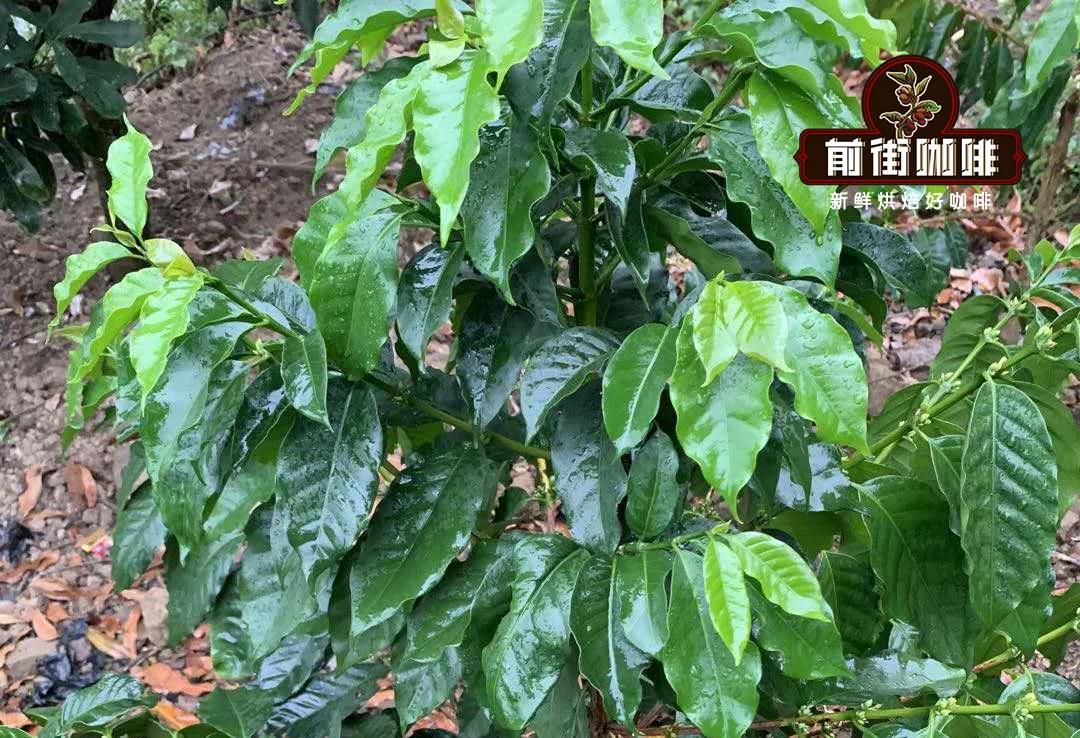
Yunnan Katim Coffee
In 1959, the Portugal moved the Brazilian bourbon mutant Kadura to East Timor and interbred it with Timtimor, which had a Robusta lineage, and succeeded in breeding Katim with disease resistance and super productivity. As leaf rust afflicts coffee producing countries worldwide, katim is being promoted to combat leaf rust and improve productivity with the assistance of international organizations.
Since 1992, Nestle Coffee Agriculture Department has been established to guide and study the improvement and cultivation of Yunnan coffee, and introduce high-yield and disease-resistant katim to purchase coffee according to the price of the US spot market. Katim is not purely Arabica, it is a hybrid of Timor (Arabica and Robusta hybrid) and Kadura (Bourbon variety), so Katim has 25% Robusta lineage, and its Robusta lineage also determines its taste defects: aroma is not rich enough, and the overall bitter taste is heavy, prone to astringency and more pungent musty taste.
At present, katim and its improved varieties are widely cultivated in Yunnan Province. That is, people often say that the market Yunnan coffee. Now it seems that most of Yunnan is now planting katim, this variety is Arabica bourbon branch Kadula and Robusta hybrid, the reason for planting this variety is because katim has Robusta gene, so in disease resistance convenience will be stronger than a single old variety, and yield is also good, compared with delicate old varieties, disease resistance is poor yield is also low, farmers naturally prefer to plant katim, so now Yunnan has set off a wave of katim wind.
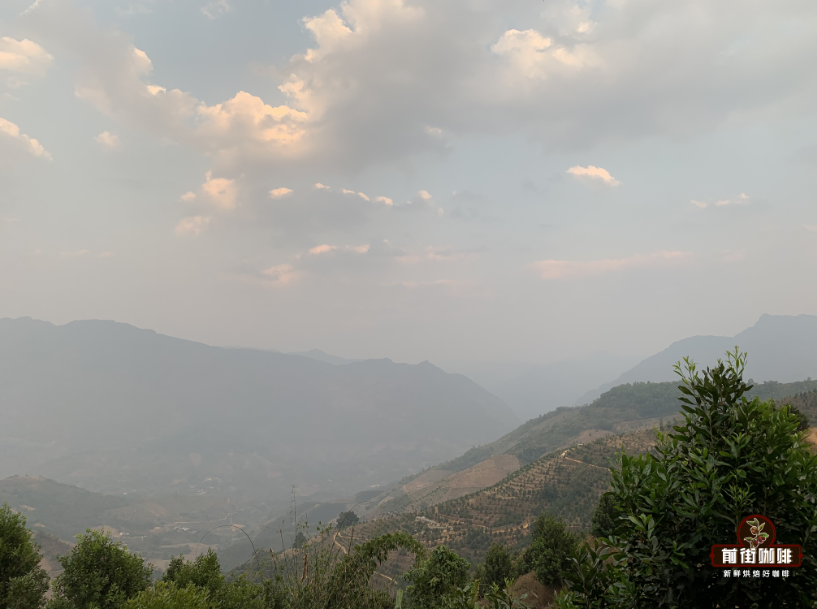
main producing areas
Arabica coffee is suitable for growing in the mountains of 800~1800 meters above sea level. If the altitude is too high, it tastes sour, and if it is too low, it tastes bitter. Arabica coffee is mostly planted in dry and hot valleys at an altitude of about 1100 meters, so the acidity is moderate, the aroma is rich and mellow. Many areas of Yunnan Province have unique environments suitable for the growth of Arabica coffee, and the Arabica coffee produced is of excellent quality.
Planting areas are mainly distributed in Lincang, Baoshan, Simao, Xishuangbanna, Dehong and other prefectures. Baoshan has an average temperature of 21.5℃ and a maximum temperature of 40.4℃. There is basically no frost all year round. It is recognized as the best producing area of Arabica coffee. The Arabica coffee cultivated here is famous for its strong but not bitter, fragrant but not strong, well-proportioned grain facets, mellow fragrance and fruity flavor. The International Coffee Organization's tasting experts rated Yunnan coffee as Colombia's wet-processed Arabica coffee, the highest quality coffee in the world. growth period
Coffea arabica 3~4 years old fruiting trees.
Coffee is a short-day plant. Coffee has the characteristics of multiple flowering and concentrated flowering. Coffea arabica flowers from February to July and blooms from March to May in Yunnan. The flowering of coffee is greatly affected by climate, especially rainfall and temperature. Coffee flower life is short, only 2 - 3 days. Arabica coffee generally opens at 3 to 5 in the morning and blooms at 5 to 7. Coffee fruits take longer to develop. Coffee arabica ripens in 8~10 months, usually in October ~ December of the year. Rainfall has a great influence on fruit development, and climate conditions directly affect fruit development.
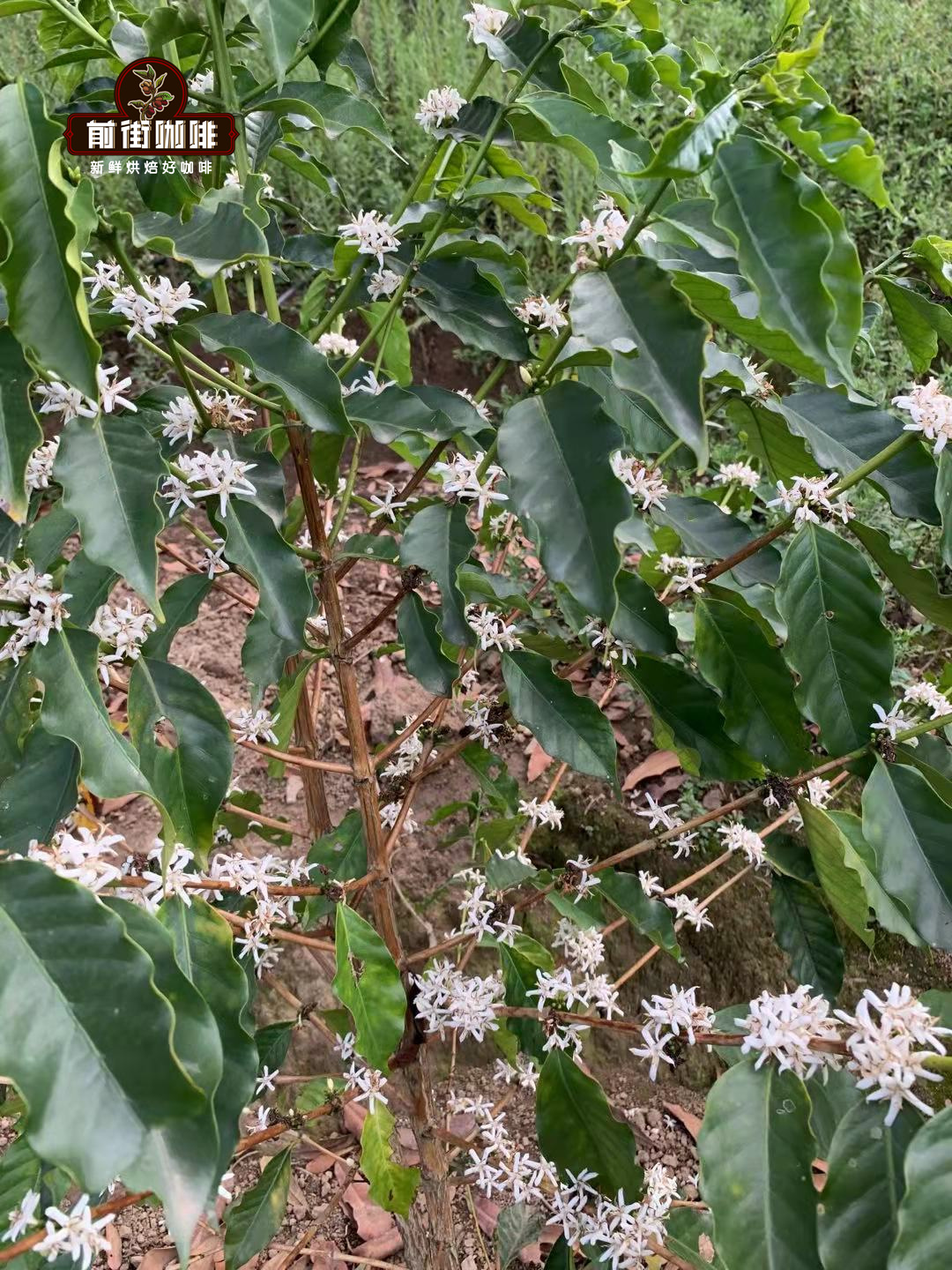
As for Katim's treatment, there are two different coffee bean treatments on the front street. They are washing and red cherry sun treatment. So what's the difference in their coffee flavor? Front Street Coffee will brew to see what's different.
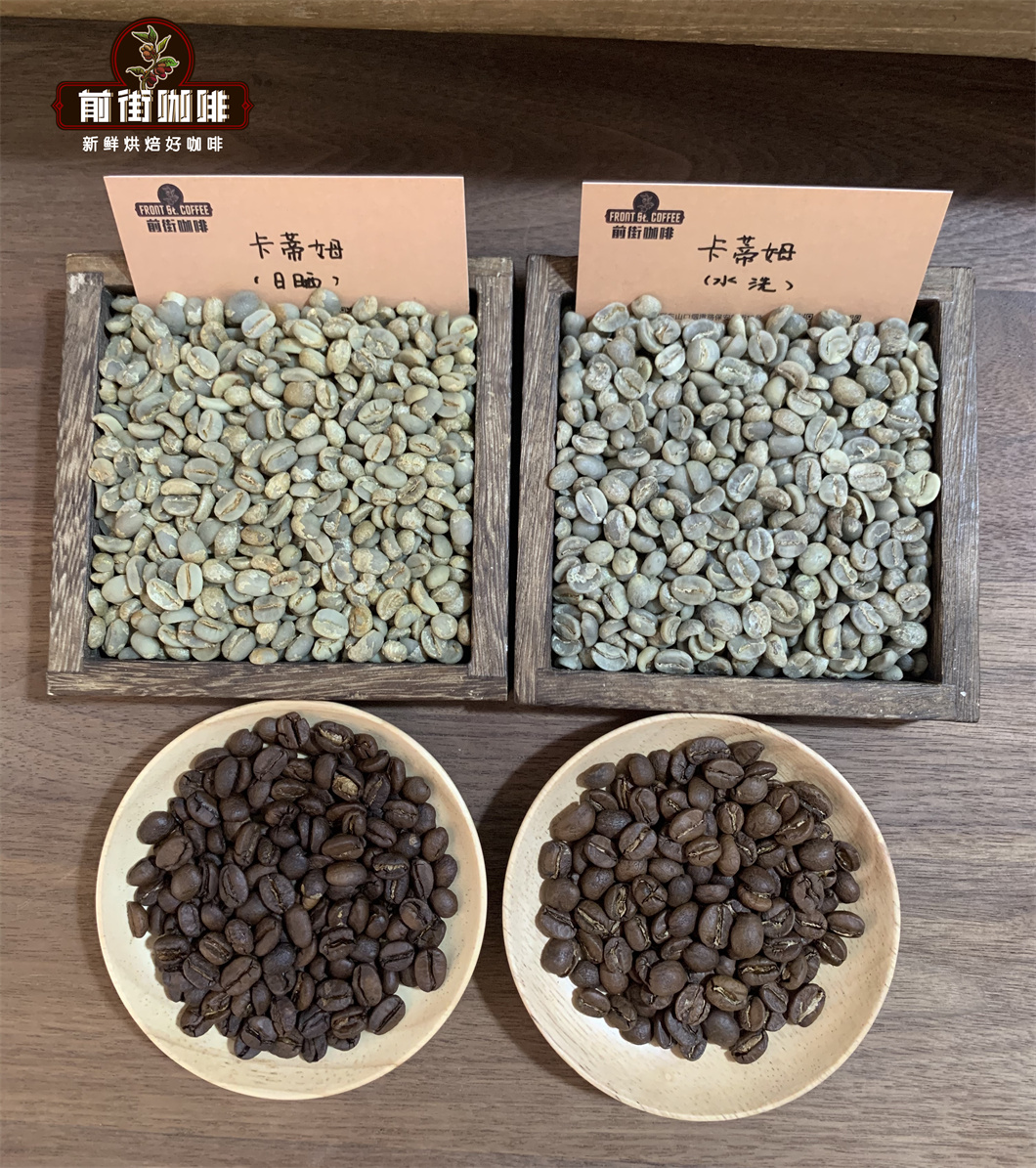
Qianjie Coffee Yunnan Arabica Coffee Production area: Baoshan, Yunnan, China Altitude: 1200m Variety: Katim Processing Method: Shuiqian Street Coffee Yunnan Katim Production Area: Lujiangba Production Area, Baoshan, Yunnan, China Elevation: 1450-1550m Variety: Katim Treatment: Red cherry sun [Hario V60] brewing Because the ribs of the V60 filter cup are curved from top to bottom, and the length is different, the exhaust is smoother and the flow rate is faster when brewing, and it is because of this that the coffee flavor level extracted will be more obvious, so the front street will use V60 to brew a pot of Yunnan granules. In the brewing method, Xiaobian will use the segmented extraction method to increase the extraction rate of beans.
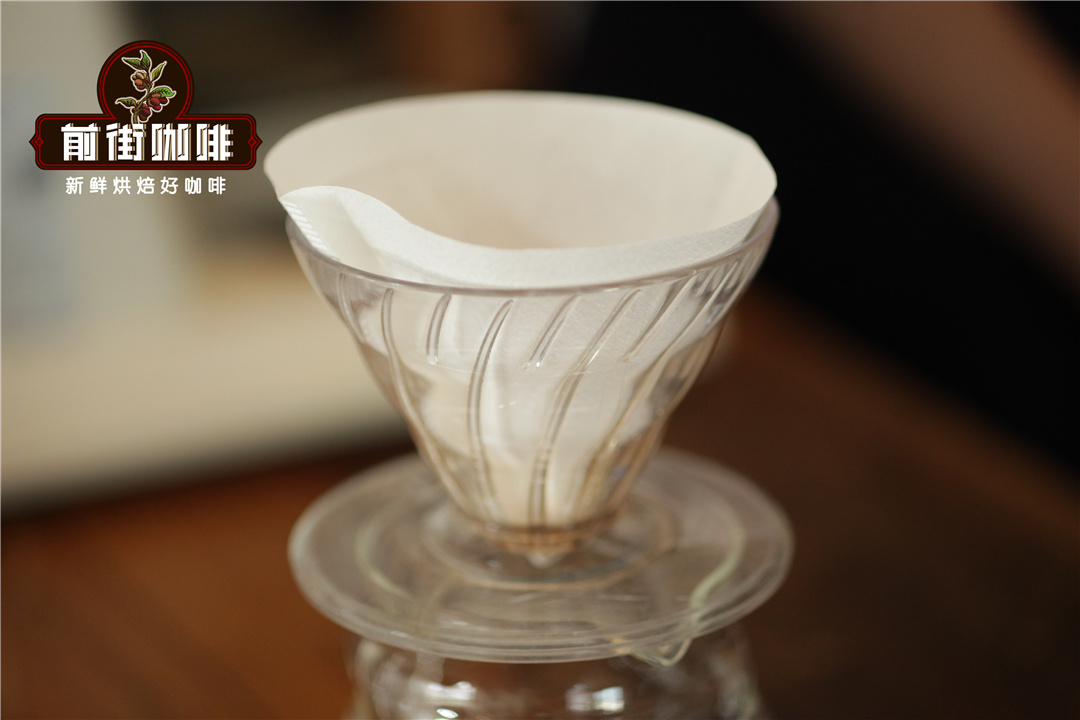
Parameters & methods: grinding BG 5R (Chinese standard 20 sieve pass rate 58%), water temperature 91℃, powder water ratio 1:15. Steaming with 30g of water for 30 seconds, stopping when water injection is 125g, continuing water injection to 227g when water level drops and is about to expose powder bed, removing filter cup when water level drops and is about to expose powder bed, extraction time is 1:42.
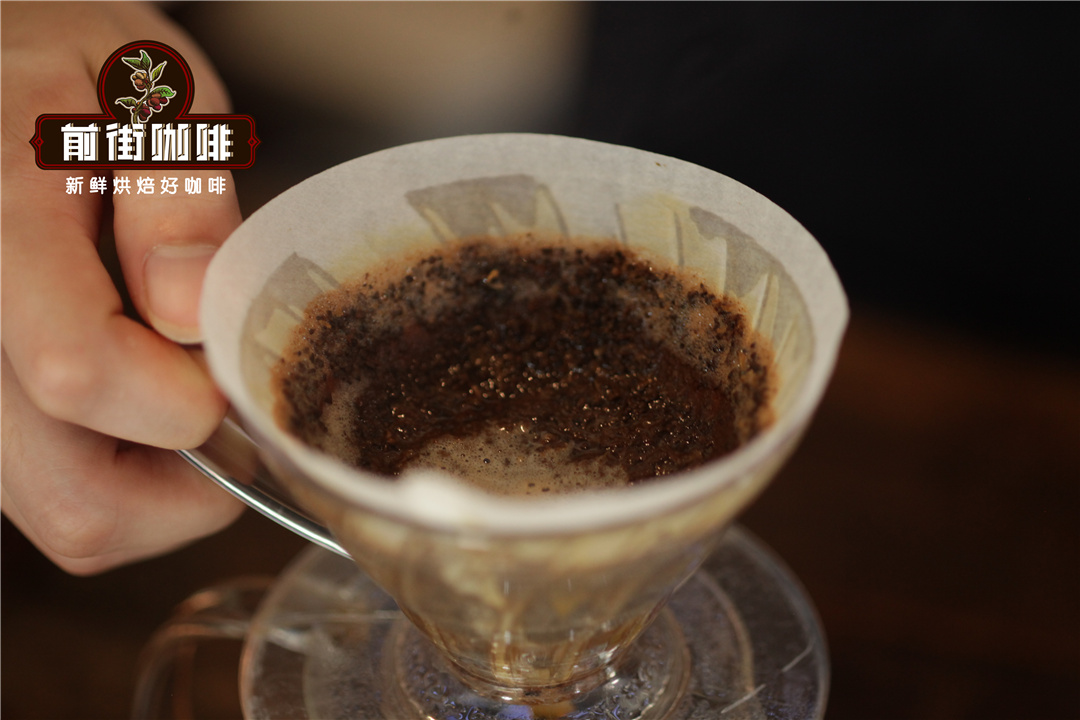
Yunnan small grains washed and boiled flavor: melon, cucumber, cream, citrus, chocolate, almond, sweet orange, black tea sense, the end of the sweet melon, passion fruit acid tone, the overall flavor level is more obvious. Yunnan katim sun cooked flavor: nuts, chocolate, spices, caramel, red berries.
More fine coffee beans, please add private WeChat Qianjie Coffee, WeChat: kaixinguoguo0925
Important Notice :
前街咖啡 FrontStreet Coffee has moved to new addredd:
FrontStreet Coffee Address: 315,Donghua East Road,GuangZhou
Tel:020 38364473
- Prev

Is Katim Arabica? Katim Coffee introduction.
Following Cafe (Wechat official account vdailycom) found that Beautiful Cafe opened a small shop of its own, Catimor: in 1959, the Portuguese mixed Brazilian Kaddura with Timo to produce a disease-resistant Katim / Katimo, which is now an important variety of commercial beans. Small seed coffee, belonging to Katim high generation variety, medium dwarf plant, vigorous growth, accessory sex.
- Next

Yunnan Katim Coffee beans Coffee Story of Yunnan Katim Coffee beans
Following Cafe (Wechat official account vdailycom) found that Katim, a beautiful cafe, opened a small shop of its own. As a variety that has taken root in Yunnan, I love and hate it. Although it has many shortcomings and is not suitable for planting at high altitude at all, there is still a lot of room for improvement and it has become better and better. How to find more of its advantages
Related
- Detailed explanation of Jadeite planting Land in Panamanian Jadeite Manor introduction to the grading system of Jadeite competitive bidding, Red bid, Green bid and Rose Summer
- Story of Coffee planting in Brenka region of Costa Rica Stonehenge Manor anaerobic heavy honey treatment of flavor mouth
- What's on the barrel of Blue Mountain Coffee beans?
- Can American coffee also pull flowers? How to use hot American style to pull out a good-looking pattern?
- Can you make a cold extract with coffee beans? What is the right proportion for cold-extracted coffee formula?
- Indonesian PWN Gold Mandrine Coffee Origin Features Flavor How to Chong? Mandolin coffee is American.
- A brief introduction to the flavor characteristics of Brazilian yellow bourbon coffee beans
- What is the effect of different water quality on the flavor of cold-extracted coffee? What kind of water is best for brewing coffee?
- Why do you think of Rose Summer whenever you mention Panamanian coffee?
- Introduction to the characteristics of authentic blue mountain coffee bean producing areas? What is the CIB Coffee Authority in Jamaica?

